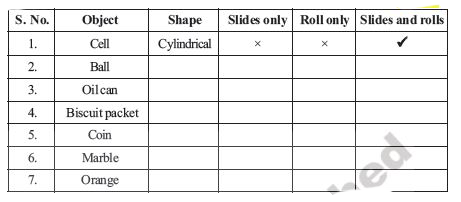Is (16÷4)÷2=16÷(4÷2)?
Is there any associative property for division?
Check if the property holds for subtraction of whole numbers too.Solution in Telugu
Step by step video & image solution for Is (16-:4)-:2=16-:(4-:2)? Is there any associative property for division? Check if the property holds for subtraction of whole numbers too. by Maths experts to help you in doubts & scoring excellent marks in Class 6 exams.
Updated on:21/07/2023Topper's Solved these Questions
- WHOLE NUMBERSBOOK - NCERT TELUGUCHAPTER - WHOLE NUMBERSEXERCISE - TRY THESE
20 Videos
- WHOLE NUMBERSBOOK - NCERT TELUGUCHAPTER - WHOLE NUMBERSEXERCISE - Exercise 2.1
20 Videos
- WHOLE NUMBERSBOOK - NCERT TELUGUCHAPTER - WHOLE NUMBERSEXERCISE - Do This
28 Videos
- UNDERSTANDING 3D AND 2D SHAPES BOOK - NCERT TELUGUCHAPTER - UNDERSTANDING 3D AND 2D SHAPES EXERCISE - DO THIS
3 Videos
Similar Questions
Find the using number line:
What number should be deducted from 8 to get 5?
View SolutionWhich of the statements are true (T) and which are false (F). Correct the false statements
There is a natural number that has no predecessor.
View SolutionWhich is the smallest whole number?
View SolutionFill the table accordingly:

View SolutionProperty 2 The subtraction of whole numbers is not commutative that is if a and b are two whole numbers then in general a−b is not equal to (b−a).
View SolutionProperty 4 The subtraction of whole numbers is not associative. That is if abc are three whole numbers then in general a−(b−c) is not equal to (a−b)−c.
View SolutionProperty 2 If a is any whole number then a÷1=a.
View SolutionThe value of |[a,a+d,a+2d] , [a+d,a+2d,a+3d] , [a+2d,a+3d,a+4d]|+|[b
View SolutionWhich of the following properties is associated with whole number for an atom ?
View SolutionWite down the corresponding elements in the figure : 1)……………… br 2)…………… br 3).……………. Br 4)………….. Br 5)…………. Br 6)…………..

View SolutionWhat (16-,4)-,2=16-,(4-,2) Does cyclic property apply to division? No. Discuss it with your friends. What (28-:14)-:2 And 28-:(14-:2) Are equal?
View SolutionShow that the associative property does not hold for integers under subtraction.
View Solution(i) (2+5)+4=2+(5+4) , (ii) (2+0)+4=2+(0+4) Does the associative property hold for whole numbers ? Take two more examples and write your answer.
View SolutionIs (8-:2)-:4=8-:(2-:4) ? Is there any associated property for division? Check if the property holds for subtraction of whole numbers too.
View SolutionSimplify using the distributive property of multiplication on the sum of a rational number - (2)/(7) xx [(7)/(16) - (21)/(4)]
View SolutionDivision Of Integers|Properties Of Division Of Integers: Closure Property|Commutative Property|Division Of Zero|Division Identity|Associative Property|Distributive Property|Question Property|OMR
View Solution
